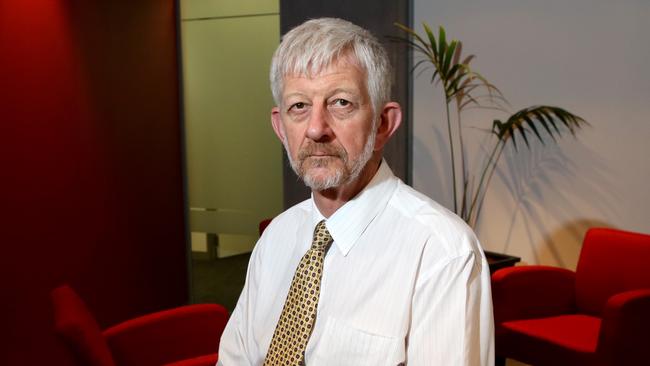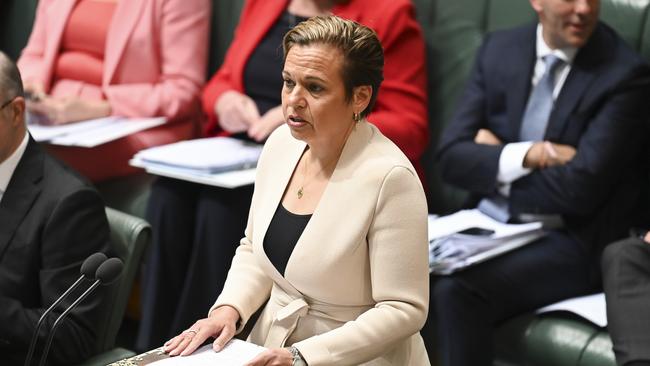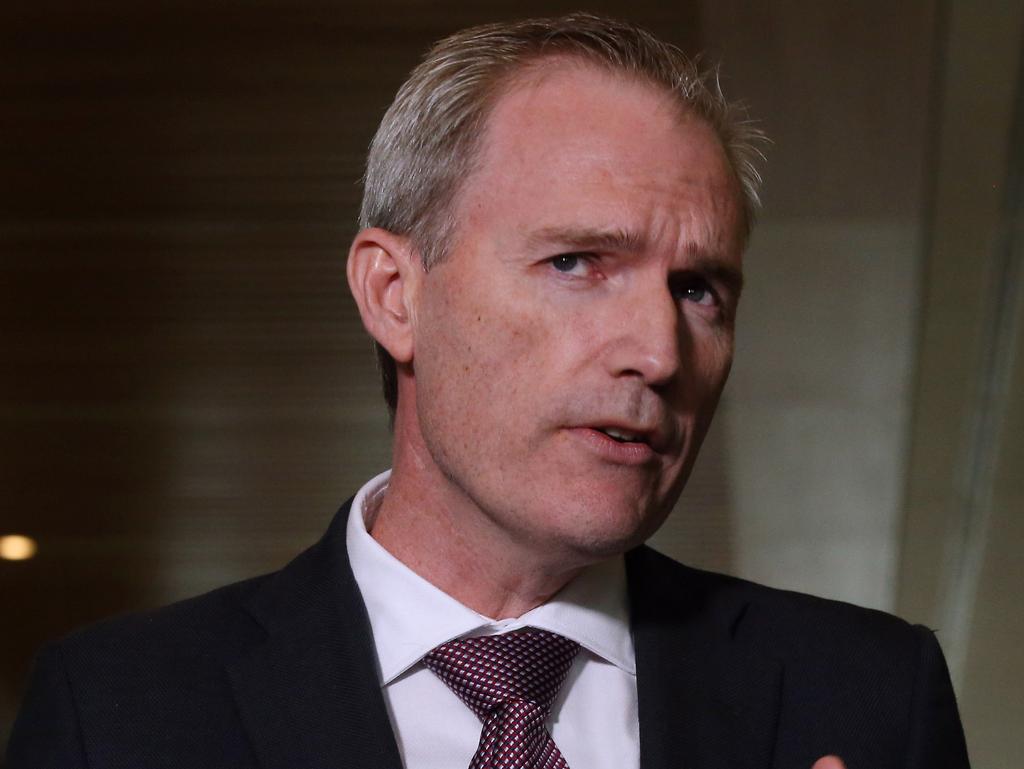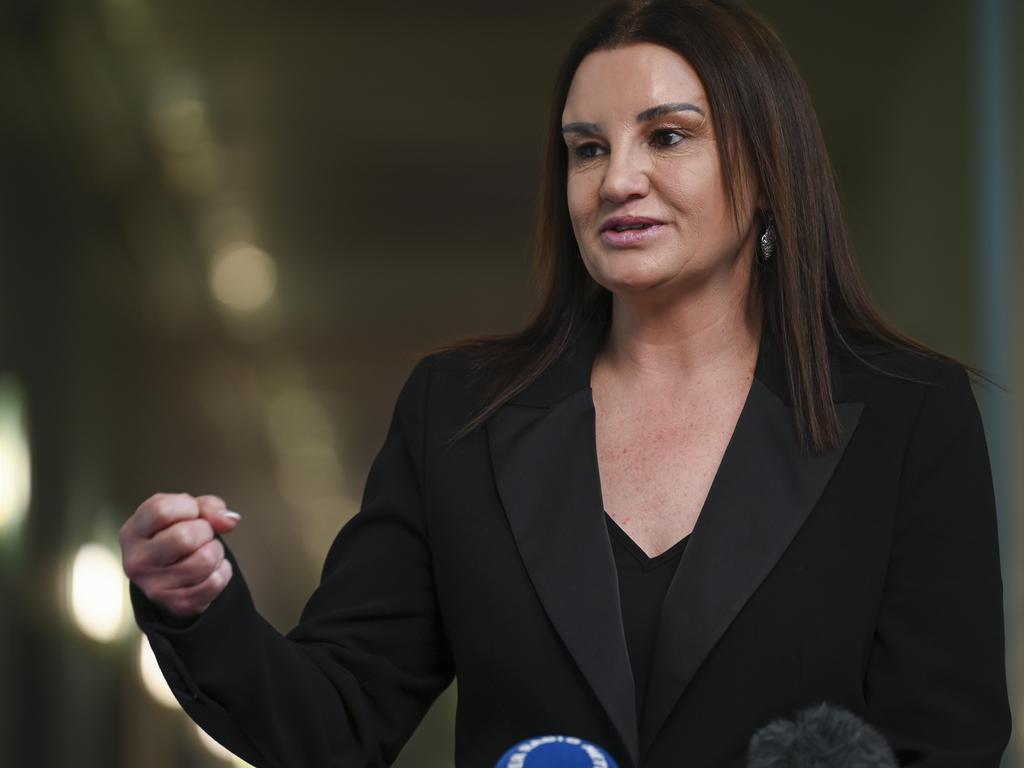Former union boss Joe de Bruyn slams Labor misinformation bill
Former head of the shoppies union Joe de Bruyn says Labor’s proposed misinformation laws will ‘muzzle’ ordinary citizens and lead the nation down the path of ‘Putin’s Russia or Xi’s China’.

Former head of the shoppies union Joe de Bruyn says Labor’s proposed misinformation laws will “muzzle” ordinary citizens and lead the nation down the path of “Putin’s Russia or Xi’s China”.
The former national secretary of the Shop Distributive and Allied Employees Association has criticised draft legislation to combat online misinformation and disinformation, arguing that it will give “faceless bureaucrats” the power to restrict free speech.
The Catholic conservative – who was a key factional ALP figure and played a role in the leadership battles between Julia Gillard and Kevin Rudd – has called for the Albanese government to scrap the legislation and “get on with running the country”.
The misinformation bill will grant the Australian Communications and Media Authority the power to fine social media giants millions of dollars for misinformation and content it deems harmful, and threatens social media giants with an industry standard if self-regulation fails, he says in a submission to the draft bill review.
“Free speech is a hallmark of a democracy,” Mr de Bruyn says in the submission.
“The ability of any citizen to express their opinions within reasonable limits of defamation and avoiding hateful and abusive language has been an essential component of our democracy for many years”.
Mr de Bruyn said the Labor Party had a “long and proud history of promoting democracy and free speech”, advising the government to “keep it that way”.
He also questioned why ACMA had been entrusted with the task of distinguishing what was true and false, arguing that this would impact freedom of speech. “Now citizens are to be muzzled,” he said.
“The faceless bureaucrats of the ACMA are to be empowered to restrict free speech in accordance with their own judgments on social media platforms.
“These bureaucrats have no claim to infallibility as to what is true and what is not.”
Mr de Bruyn acknowledged that “wild comments circulate on social media”, but argued that the Covid-19 pandemic had proven that the majority of people were not swayed by such content.
“Government should trust the common sense of the people,” he says. “When free speech is restricted beyond reasonable limits, we end up with Putin’s Russia or Xi’s China. We don’t want to go there.”
Communication Minister Michelle Rowland released the draft bill for public consultation in June, prompting an avalanche of feedback, with the government getting 23,000 responses.

Ms Rowland said the consultation process had been focused on whether the bill struck the right balance “between protecting Australians from serious harms online and protecting freedom of expression … fundamental to democracy … The government thanks stakeholders for their constructive engagement, and is giving careful consideration to feedback received before the bill is finalised and introduced to parliament later this year.”
Opposition communication spokesman David Coleman said Mr de Bruyn’s critique was more powerful as it came from an “icon of Labor and the union movement”.
“Like many other concerned citizens, (he) has identified serious risks to freedom of speech that this bill represents,” he said.
The Australian Strategic Policy Institute has also released its submission on the misinformation bill, which cautioned that more needed to be done to “guard against any unintended consequences”.
ASPI said the bill in the main struck a “good balance between free speech and moderation of content” but made recommendations including that moderation decisions should be transparent to users, an avenue of appeal should be available and ACMA should be able to cancel the licence of digital platforms if they were “contrary to Australia’s national interest”.
“The ACMA should mandate that digital platforms, including social media platforms, publicly disclose co-ordinated inauthentic behaviour, which may include attributable state-backed influence operations, as they become aware of them,” it said.








To join the conversation, please log in. Don't have an account? Register
Join the conversation, you are commenting as Logout